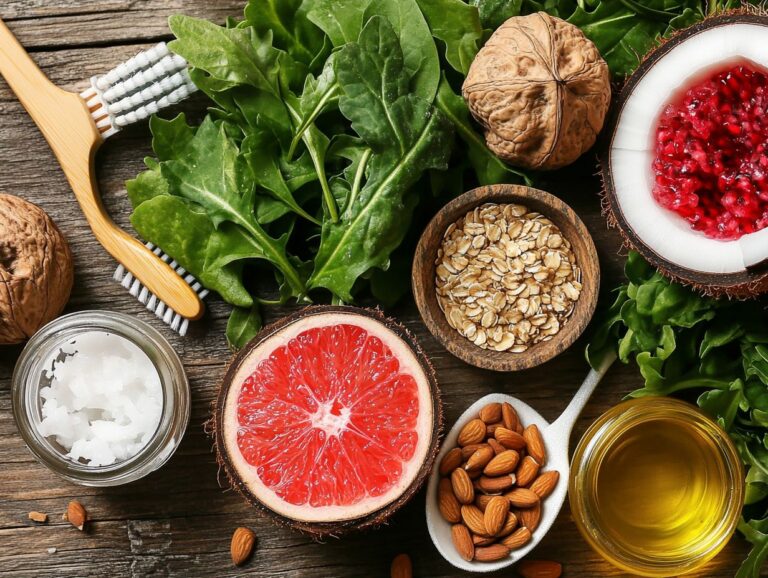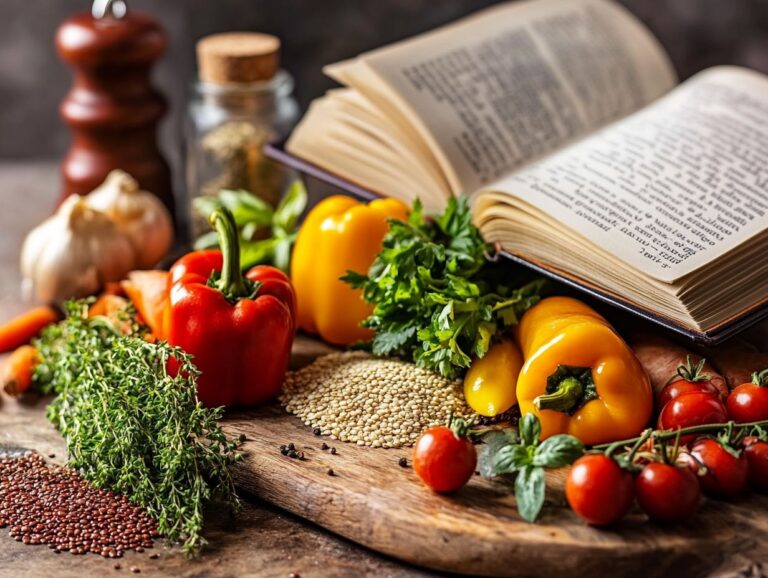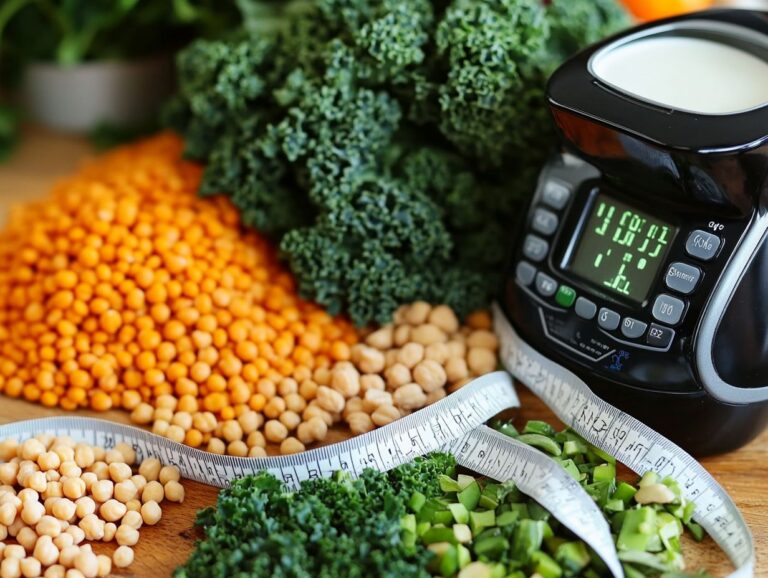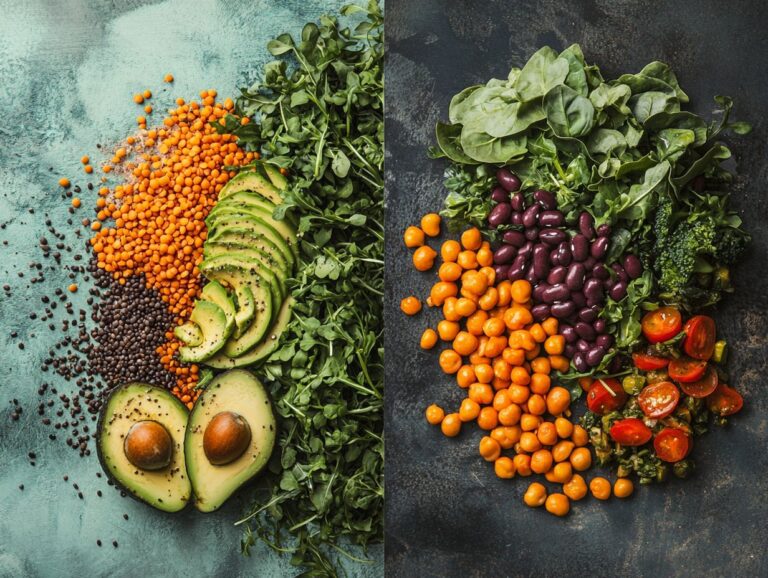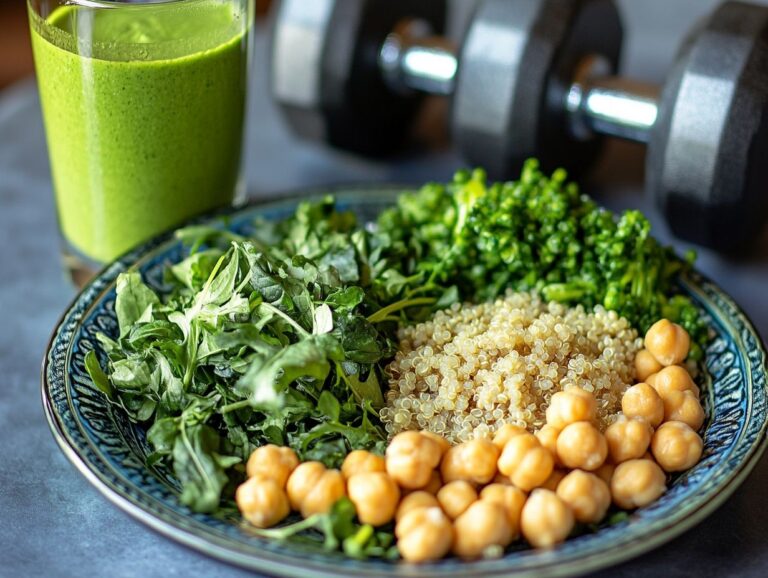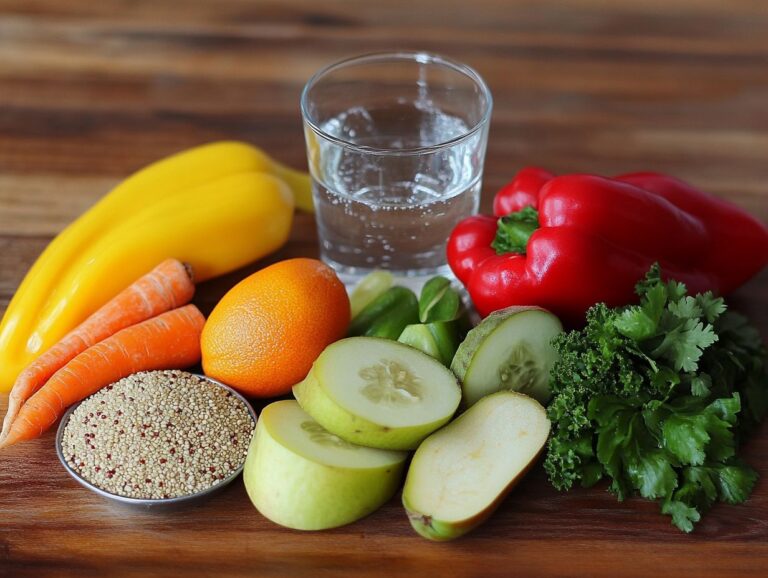Are you curious about the impact of a vegan diet on hair growth? If so, you’re not alone. As plant-based eating gains popularity, it’s essential to understand how this lifestyle affects hair health. In this article, we will define what a vegan diet entails, highlight the key nutrients that support hair growth, and provide guidance on how to obtain adequate amounts of these nutrients. Additionally, we will offer tips and supplement suggestions to help keep your hair healthy and vibrant while following a vegan diet.
What is a Vegan Diet?
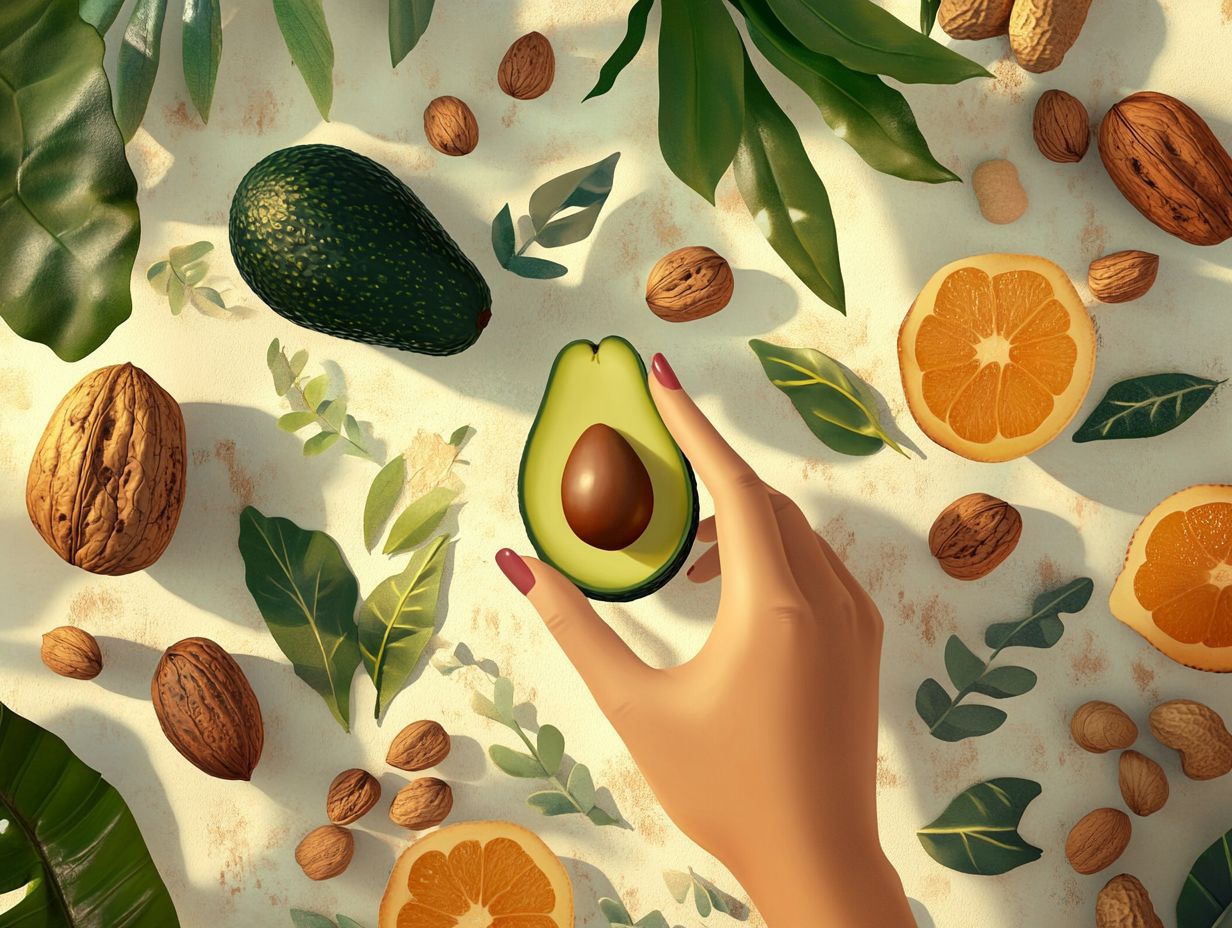
A vegan diet is a dietary approach that excludes all animal products, including meat, dairy, and eggs, while focusing on whole foods derived from plants. This lifestyle choice not only promotes health but also reflects ethical considerations related to animal welfare and environmental sustainability.
Those who follow a vegan diet typically emphasize whole foods such as fruits, vegetables, legumes, nuts, and seeds, which are rich in essential vitamins, minerals, and healthy fats necessary for optimal health. According to trichologist Anabel Kingsley, maintaining a well-balanced vegan diet can support healthy hair growth and reduce the risk of hair loss.
What Foods are Included in a Vegan Diet?
A vegan diet consists of a variety of whole foods, including fruits, vegetables, legumes, nuts, seeds, and whole grains, all of which provide essential nutrients necessary for overall well-being.
Leafy greens, such as spinach, are rich in iron, as well as vitamins A and C, all of which are crucial for healthy hair growth. Berries are packed with antioxidants that support immunity and enhance nutrient absorption. Almonds are a source of healthy fats and vitamin E, both of which contribute to shiny and strong hair.
Additionally, pumpkin seeds supply zinc and omega-3 fatty acids, both of which are vital for maintaining healthy hair and promoting hair growth. Including chia seeds in your diet can also boost your intake of omega-3 fatty acids, enhancing both hair health and overall wellness.
What Foods are Excluded from a Vegan Diet?
A vegan diet excludes all animal products, including meat, dairy, eggs, and any ingredients derived from animals, thereby promoting a purely plant-based lifestyle. This exclusion is primarily based on health considerations, as many individuals believe that eliminating animal products can reduce the risk of certain diseases while aligning with ethical beliefs against animal cruelty.
However, adopting a vegan diet may present potential nutritional challenges. For example, the absence of fish, a common source of omega-3 fatty acids, can lead to deficiencies that may impact heart health and cognitive function. Additionally, without dairy or eggs, individuals might miss out on essential nutrients such as vitamin B12 and certain proteins, which are crucial for maintaining hair health. B12 supplements are therefore recommended to prevent deficiencies that could lead to hair thinning.
Therefore, careful planning is essential to ensure a balanced intake of all necessary nutrients for overall well-being.
How Does a Vegan Diet Affect Hair Growth?
A vegan diet can positively or negatively affect hair growth, depending on the adequacy of essential nutrients needed for healthy hair.
Individuals following a plant-based diet must ensure they maintain sufficient levels of certain nutrients to prevent hair loss and promote hair health.
Nutritional deficiencies in iron, zinc, omega-3 fatty acids, and essential vitamins such as vitamin B12 and vitamin C can adversely impact hair growth and overall hair health. Consulting a trichologist like Anabel Kingsley or seeking advice from experts at Business Insider can provide strategies for overcoming these challenges.
What Nutrients are Essential for Hair Growth?
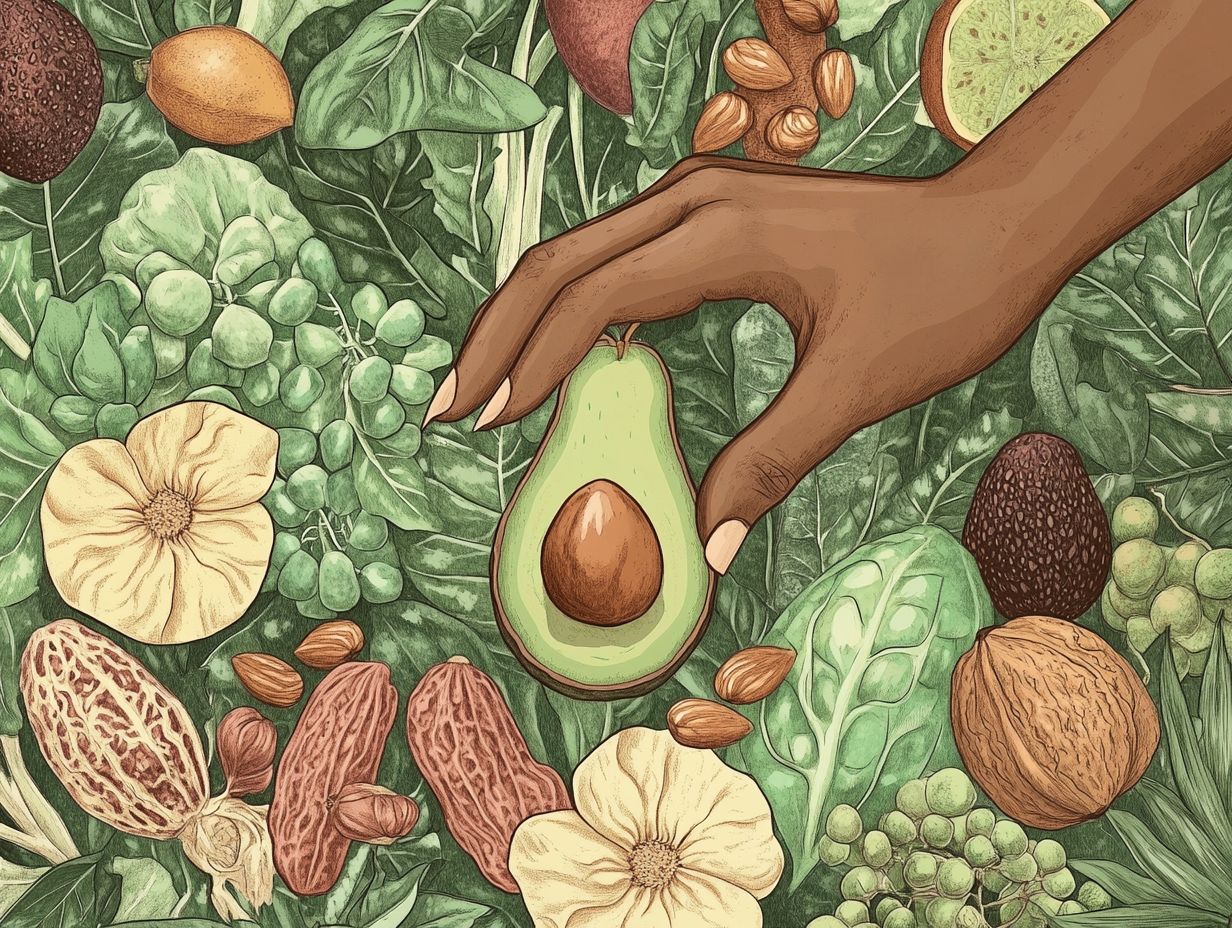
The following nutrients are essential for hair growth:
- Omega-3 fatty acids
- Biotin
- Iron
- Zinc
- Various vitamins
These nutrients play a crucial role in strengthening hair follicles, stimulating circulation in the scalp, and keeping hair moisturized and nourished.
Omega-3 fatty acids are beneficial for scalp health and can be found in flaxseeds and chia seeds, helping to combat dryness and prevent breakage. Biotin is renowned for its positive effects on hair and is abundant in legumes and nutritional yeast; it aids in the formation of keratin, which is vital for maintaining healthy hair structure.
Iron and zinc are critical for delivering oxygen to hair follicles and can be obtained from a vegan diet through sources such as lentils, chickpeas, and pumpkin seeds.
How Does a Vegan Diet Provide these Nutrients?
A well-planned vegan diet can provide the necessary nutrients for hair growth by incorporating a variety of protein sources, whole foods, and healthy fats that are rich in essential vitamins and minerals.
Among these foods, nutritional yeast, pumpkin seeds, and almonds stand out as particularly beneficial for hair growth.
Nutritional yeast is an excellent source of B vitamins, which support cell metabolism and are crucial for the strength and shine of hair. Additionally, it contains selenium, which is vital for maintaining scalp health.
Pumpkin seeds offer a good supply of zinc, which is vital for the growth and repair of hair tissue, along with healthy fats that nourish the scalp.
Almonds are rich in vitamin E, an antioxidant that helps reduce oxidative stress on hair follicles. This highlights the importance of healthy fats for hair structure and the potential need for supplementation in a vegan diet.
Tips for Nourishing Your Hair on a Vegan Diet
Vegan foods that promote hair health are rich in vitamins and nutrients essential for hair growth. By following a well-planned vegan diet, you can obtain the necessary nutrients to nourish and support your hair.
1. Incorporate Plant-Based Protein Sources
The significance of plant protein in a vegan diet lies in the diverse range of foods that provide this essential nutrient. These foods contribute to hair growth and overall health by supplying the necessary amino acids required to form the proteins that make up hair.
Amino acids, the building blocks of proteins, are linked together in various quantities and sequences, which give hair its distinctive properties.
For instance, lentils are an excellent source of protein, iron, and zinc, all of which are vital for preventing hair thinning. Chickpeas also offer a good supply of zinc, iron, and certain B vitamins that can help avert hair loss and promote the growth of healthy hair.
Nuts, particularly walnuts and almonds, are rich in omega-3 fatty acids, which can enhance scalp health and add shine to hair. They are also a valuable source of protein.
Similarly, seeds, especially chia and flaxseeds, provide hydration and elasticity, helping to prevent hair breakage. A lack of sufficient protein can lead to nutritional deficiencies, resulting in brittle strands that grow slowly.
2. Eat Foods Rich in Biotin
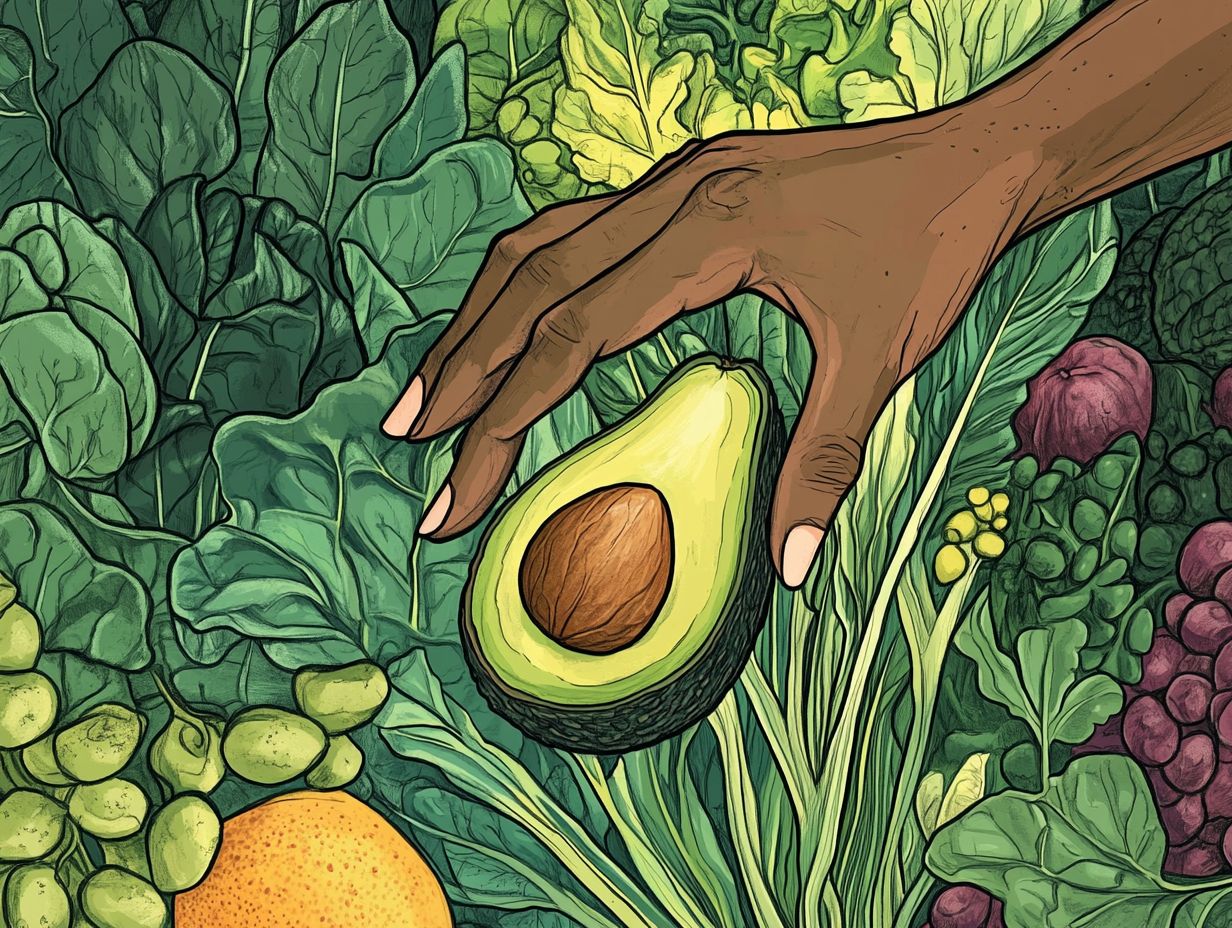
Incorporating foods rich in biotin, such as nutritional yeast, nuts, and whole grains, is essential for promoting hair health and preventing hair loss in individuals following a vegan diet. According to Dr. Angela Eakin, these foods help ensure that people receive an adequate amount of this vital B vitamin, which supports keratin production and strengthens hair follicles.
These nutrient-dense foods help ensure that people receive an adequate amount of this vital B vitamin, which supports keratin production and strengthens hair follicles. Biotin (vitamin B7) plays a crucial role in preserving the natural elasticity and shine of hair.
Adding sources like avocados, sweet potatoes, and legumes to the diet is a delicious way to enhance hair growth while meeting biotin requirements.
By paying close attention to biotin intake, individuals can also improve overall hair vitality, making hair strands more resilient against other dietary deficiencies and stress.
3. Consume Omega-3 Fatty Acids
In a vegan diet, consuming sources of omega-3 fatty acids, such as flaxseeds, chia seeds, and walnuts, is essential for promoting healthy hair and supporting hair growth.
These essential fats nourish the scalp, which serves as the foundation for healthy hair follicles, by improving blood circulation and enhancing the delivery of nutrients to the hair roots. This process encourages stronger strands and reduces hair fall.
Including healthy fat-rich foods in the diet helps prevent scalp dryness and flakiness while adding a natural shine to the hair. A balanced intake of omega-3s contributes to shiny and vibrant hair, emphasizing the overall importance of effective hair care. Consider products from GK Hair, which are known for their focus on vegan hair care solutions.
4. Include Iron-Rich Foods in Your Diet
Iron-rich foods, such as spinach, legumes, and fortified cereals, are essential components of a vegan diet to prevent iron deficiency, which can negatively impact hair growth. A balanced intake of these plant-based sources contributes not only to better iron levels but also to overall hair health.
Pairing iron-containing foods with those high in vitamin C, such as bell peppers or citrus fruits, enhances iron absorption, making it easier for the body to utilize these essential nutrients. Being aware of nutritional deficiencies is crucial, as insufficient iron can lead to hair thinning and a lackluster appearance.
Additionally, soaking and sprouting legumes, along with consuming fortified products, can further improve the bioavailability of iron, promoting healthy and vibrant hair.
Vegan Supplements for Hair Growth
A vegan diet that includes specific supplements such as biotin, iron, and vitamin D has been shown to promote hair growth and improve hair health. Utilizing collagen from plant-based sources and eco-friendly packaging, as offered by brands like Holland & Barrett, can further support a sustainable and effective approach to vegan hair care.
1. Biotin Supplements
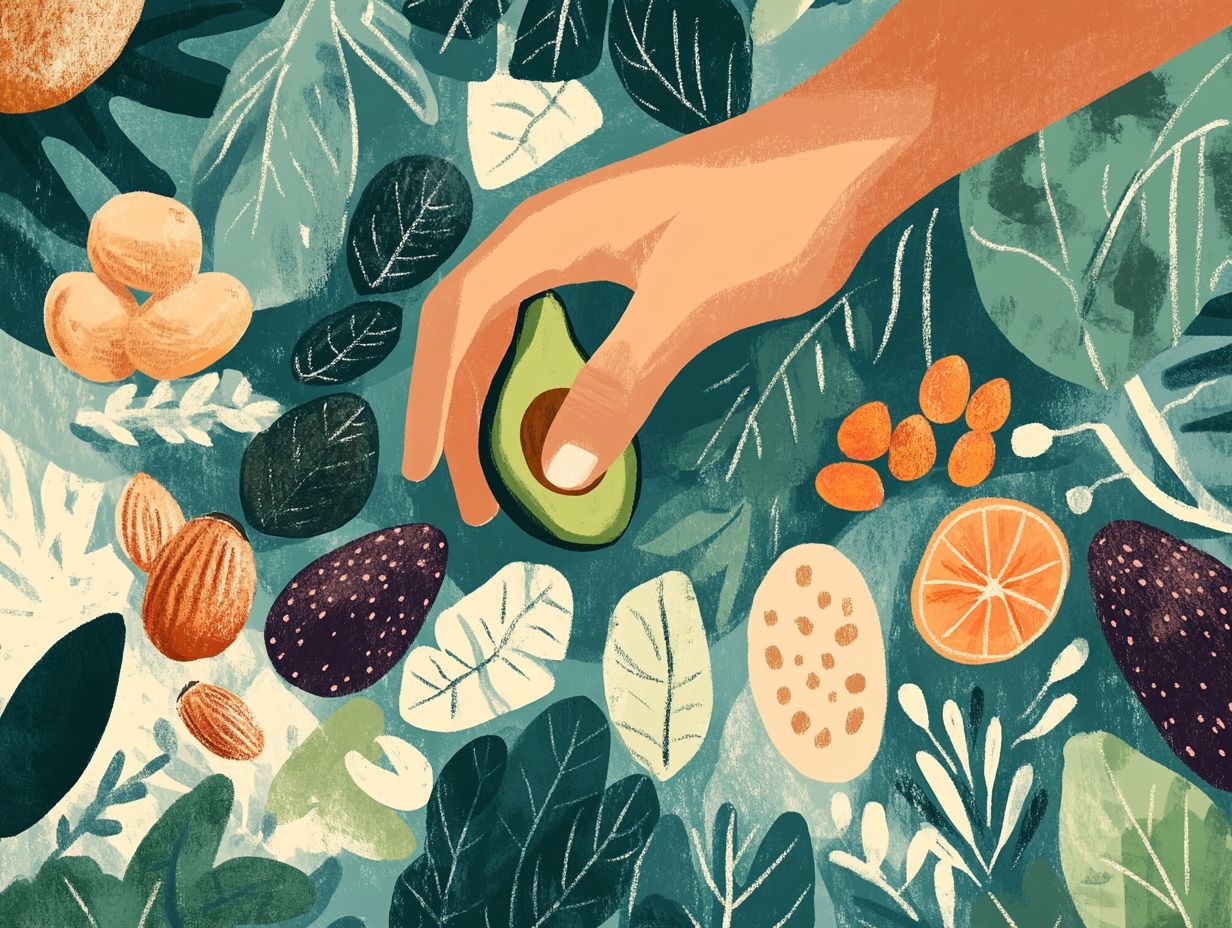
Biotin supplements are widely recognized for their benefits in promoting hair health, making them an excellent addition to a vegan diet for individuals concerned about hair growth.
Rich in vitamins and nutrients, biotin plays a crucial role in strengthening hair follicles, which can enhance hair texture and reduce breakage.
For those following a vegan diet, it can be challenging to obtain enough biotin from natural sources, as some of the richest sources are animal-based. However, nuts, seeds, avocados, and certain whole grains serve as good plant-based sources of biotin.
It is often recommended that individuals on a vegan diet take biotin supplements to ensure they meet their daily intake needs, with dosages typically ranging from 30 to 100 micrograms per day. This not only supports proper hair health but also contributes to overall well-being. Including essential vitamins like vitamin B12 and vitamin C is also crucial for healthy hair, as these nutrients play a significant role in hair growth and strength.
2. Iron Supplements and Protein Sources
Iron supplements are sometimes used to promote healthy hair growth and overall vitality for individuals who cannot meet their iron requirements through a vegan diet. Iron deficiency can lead to hair loss and other health issues. These supplements are available in various forms, including ferrous sulfate, ferrous gluconate, and ferrous fumarate, each differing in concentration and absorption rates. Additionally, protein sources such as legumes and nuts are vital for those following a plant-based diet to ensure adequate nutrient intake.
It is crucial to address any nutrient deficiencies while considering their impact on hair health. Insufficient iron levels in the body can lead to fatigue and hair loss, among other symptoms.
Hair supplements that combine iron with other nutrients, such as vitamin C for enhanced absorption, can be beneficial for maintaining hair health. Zinc deficiency is another concern that can impact hair quality, so including zinc-rich foods like almonds and pumpkin seeds is advisable. Consulting with healthcare providers is essential to tailor dosages and monitor iron levels, ensuring that any supplementation is both safe and effective.
3. Vitamin D Supplements
Vitamin D supplements are essential for individuals following a vegan diet to maintain adequate levels of this important vitamin, which is crucial for hair health. Combining vitamin D with omega-3 fatty acids, found in chia seeds and algae-based supplements, can enhance the nutrient profile of a vegan diet and support hair vitality.
A deficiency in vitamin D has been linked to various hair loss conditions, making supplementation necessary for those who may not obtain sufficient amounts through their diet.
To keep hair vibrant and healthy, it is important to understand how the body utilizes this vitamin. The primary source of vitamin D is sunlight, which the skin synthesizes; however, many people may struggle to get enough sun exposure due to lifestyle choices or geographical limitations.
Vegan supplements offer a plant-based alternative, providing an easy way to support hair health without compromising dietary restrictions. With these supplements, individuals can promote hair growth and enjoy the benefits of healthy hair.
Other Factors Affecting Hair Growth on a Vegan Diet
Along with nutrition, other factors that can influence hair growth on a vegan diet include stress, hydration, and proper hair care. Incorporating whole foods rich in antioxidants and healthy fats, such as berries and nuts, can further improve hair health.
1. Stress Management
Effective stress management techniques are essential for preventing hair loss and promoting hair growth, particularly for individuals on a vegan diet who may be more susceptible to stress due to nutritional deficiencies. Consulting with a trichologist, like Anabel Kingsley from Business Insider, can provide additional insights into personalized hair care strategies.
Techniques such as mindfulness meditation and deep-breathing exercises can significantly lower stress levels, thereby improving overall hair health. These practices induce a relaxed state and help combat the anxiety that can contribute to hair loss.
For those following a vegan diet, where stress may be compounded by nutritional deficiencies, emphasizing relaxation and stress management becomes even more crucial.
Gentle yoga can further connect mental and physical health, promoting hair strength and growth. Understanding the relationship between mental health and hair loss give the power tos individuals to take proactive steps in caring for themselves.
2. Proper Hair Care Routine
A proper hair care routine is essential for maintaining healthy hair, particularly for individuals on a vegan diet who may benefit from using vegan hair care products. This routine consists of three major steps: cleansing, conditioning, and styling. Choosing products with eco-friendly packaging and natural ingredients is an excellent way to align with a sustainable lifestyle.
- Cleansing involves washing the hair to remove dirt, product buildup, and excess oil, thereby creating a clean foundation for optimal hair health.
- Conditioning adds moisture to the hair, enhancing its shine and softness. For those seeking vegan products, it is important to choose hair care routines that incorporate plant-based ingredients known for their nourishing properties.
- Styling products should aim to protect the hair from heat damage while promoting shine and overall vitality.
Vegan hair care products often contain natural oils, such as argan and jojoba oils, which help hydrate and control frizz without the inclusion of harmful chemicals. The addition of collagen-boosting ingredients in hair products can also be beneficial. By following these guidelines and selecting suitable vegan products, individuals can enhance the strength and appearance of their hair. Trusted brands like GK Hair and Holland & Barrett offer a range of products that cater to these needs.
3. Hydration and Water Intake
Proper hydration and adequate water consumption are vital components of overall wellness, particularly for hair health, especially among those following a vegan diet. Consuming hydrating foods like spinach and watermelon can also support optimal nutrient absorption and scalp health.
Water plays an essential role in nutrient transport and keeping the scalp moisturized, creating a healthy environment for hair follicles to thrive.
While a minimum of eight 8-ounce glasses of water per day is commonly recommended, individual needs may vary based on activity levels and climate. A well-hydrated body can effectively utilize key vitamins and minerals, which are abundant in a plant-based diet and crucial for hair health. Incorporating nutritional yeast into meals can provide additional vitamin B12, supporting overall well-being and hair vitality.
Adequate hydration enhances hair shine and growth while reducing scalp issues, creating a positive feedback loop that benefits both hair and skin. Dr. Angela Eakin suggests that consuming selenium-rich foods, like Brazil nuts, can further support hair and nail health.
